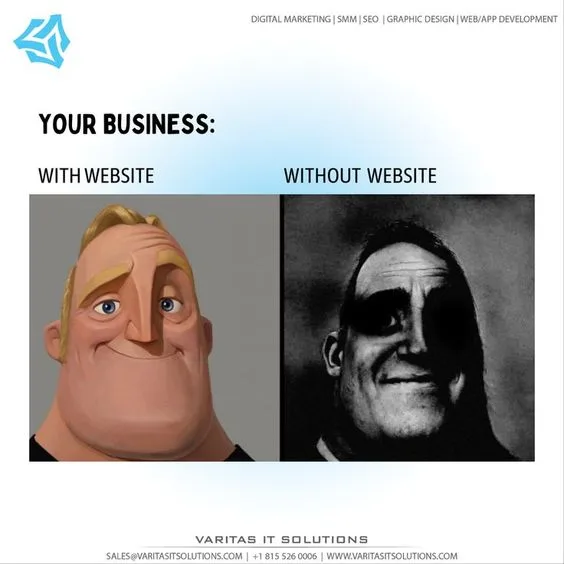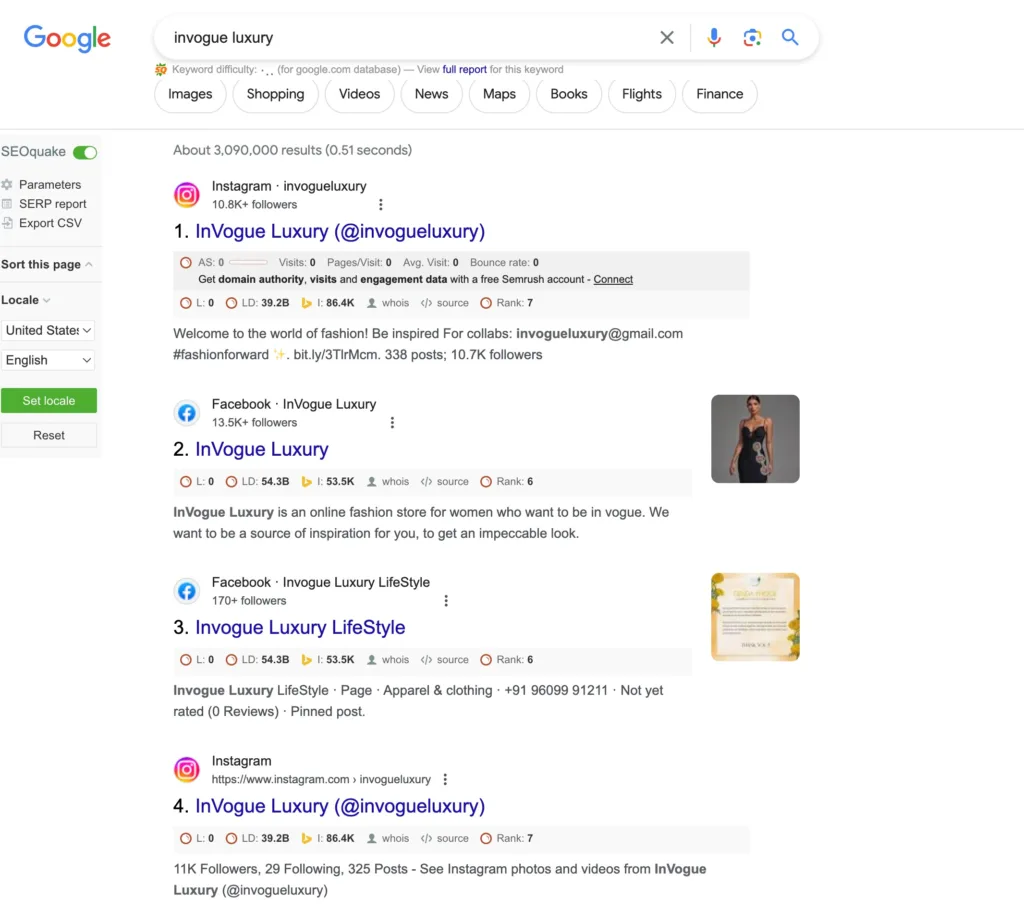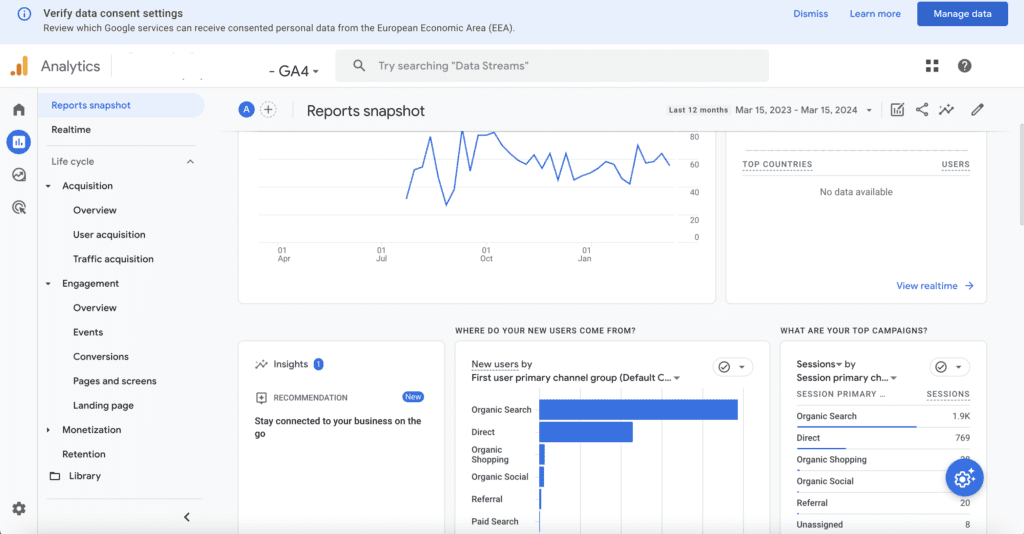6 Reasons Your Small Business Absolutely Must Have a Website
In this digital age, having a business website is no longer an option. It’s a necessity.
Think of having your own website as digital real estate. A website acts as a virtual storefront, accessible to your potential customers from anywhere in the world. It’s a powerful tool that allows you to showcase their products or services, connect with their target audience, and drive sales.
Key Takeaways:
- Having a website increases your credibility and professionalism. In the eyes of consumers, a business without a website may seem outdated or untrustworthy.
- A website serves as a 24/7 marketing tool. It allows you to reach a wider audience even when you’re not physically present.
- A business website helps you stay competitive, as more and more consumers turn to the internet to find and research businesses.
- A website can be a cost-effective way to promote your business and build brand awareness. With proper SEO strategies, you can rank high on search engine results, attracting organic traffic to your website.
- A website enables you to gather valuable data about your audience and their preferences. This data can help you make informed business decisions.
Despite the obvious benefits, a lot of business owners are still skeptical about investing in a website.
In fact, around 27% of small businesses don’t have a website. A large percentage of these business owners think social media presence is enough to compensate. But relying on a third-party platform exposes your business to increased risk. We’ve all heard the stories about Facebook shutting down pages or groups, for instance.
So if you’re still on the fence about whether your small business needs a website, here are seven compelling reasons that should convince you otherwise.
Increased Visibility and Credibility
Having a website increases your credibility and professionalism in the eyes of consumers.
Most people nowadays use the internet to find information about businesses before making a purchase decision. The first thing they do is search for your business on Google. So imagine their disappointment or frustration if they can’t find you because you don’t have a website.
I’ll tell you. They’ll think you’re not an established business, or worse, a fly-by-night or untrustworthy one. Then they go directly to your competitors.

The meme above was created by a web development company so they may be biased, but they’re pretty accurate.
A business website is one of the bare minimums in a digital world. It’s not just customers who expect you to have one. Your suppliers, partners, and anyone you want to do business with will use it to gauge your credibility.
Having a well-designed and informative website can help you establish trust with your audience and make a positive first impression. It allows you to showcase your brand, highlight your products or services, and provide essential information about your business. By having a website, you show that you are serious about your business and willing to invest in its online presence.
Brand Visibility
A website also enhances your visibility. Potential customers use search engines like Google to find local businesses. You’re missing out on potential customers when you don’t have a website.
On the other hand, having a website increases your chances of appearing the search results. This can lead to more people learning about you and your products or services. The opportunity increases when you start optimizing your website for search engines (aka search engine optimization or SEO).
A business website is a must if you want to rapidly grow your business. With a website, you can reach a wider audience beyond your local community. You can attract customers from all over the world and expand your business beyond geographic boundaries.
Branding Consistency
Moreover, having a website allows you to establish a consistent brand image online.
When your potential customer lands on your website, they can immediately identify you from your logo, brand colors, and brand messaging. They can browse your products and learn about your services. They can instantly buy your product should they wish to do so.
Compare that with the experience of someone who sees content about your business from third-party channels you don’t own.
Below, you’ll see how the search results look like for a clothing store that doesn’t have a website.

You’ll notice they have over 13K followers on Facebook and more than 10K on instagram. But that doesn’t help them look more legit. Instead you end up asking, “if they’re that popular then why don’t they have a website?”
Sure, you can have a Facebook, Instagram or a LinkedIn page. But not only do you have absolutely NO control over these channels; they’re built for maximum distraction for your customers!
Your owned website is the way to go if you’re serious about creating a cohesive and memorable brand experience for your audience. Consistency in branding helps build trust and recognition, making it easier for customers to remember and choose your business over competitors.
Improved Customer Engagement
Here’s another area where having your very own business website helps: effective customer engagement and support.
Through your website, you can provide various channels for customers to reach out to you. You can put contact forms, live chat, and click-to-call buttons so it’s easier for potential and existing customers to get in touch with you, ask questions, or request more information about your products or services.
Another way that a website makes customer service a breeze is through a dedicated FAQ (frequently asked questions). Here, you can answer common customer questions so they don’t have to email or call you. This way, you avoid clogging your customer service with repetitive support requests. You also save time for both you and your customers.
Here’s an example of how a FAQ section looks like (from the Leonardo.ai website):

Once you have website, you can also take things further to stay connected with customers. You can implement newsletter and email campaigns to keep them updated. You can capture email addresses to build a database of interested customers. With a website, you open up new opportunities for nurturing your relationship with customers and driving repeat business.
24/7 Online Presence
A business website, quite literally, helps you make money while you sleep.
Unlike a physical store that has opening and closing hours, a website is accessible to customers 24/7. Potential customers can learn about your products or services and make purchases at any time, even outside of regular business hours.
Your website continues running – and getting customers – even when you’re not physically present. This means that your business is always accessible, and potential customers can learn about your products or services whenever it is convenient for them.
Of course, you still need to do some of the work. For instance, you want to make sure your website showcases your products or services in a visually appealing and informative way. You’d need high-quality images, detailed descriptions, or even videos (if you want) to engage and attract potential customers. You also need to periodically update content to make sure these stay accurate.
But once all of these pieces are uploaded and launched, you can leave your website to do the heavy lifting. Well, not really. You might have to tweak and optimize your site much later, but you get the drift.
Cost-Effective Marketing Tool
Let’s acknowledge the elephant in the room: cost.
Building a website isn’t exactly cheap. Especially if you want one that looks professional enough. And you do, because you want a website that looks trustworthy and appealing to customers.
So you’re naturally worried about the return on investment (ROI) that a website would bring. You’re skeptical if the effort and resources spent on building the website will translate into tangible benefits for your business.
Here’s the thing: like most things in business, you have to take a calculated risk with websites. Otherwise, you’ll never get to see its potential.
Calculating the ROI of your Business Website
If done right, your business website will pay for its own cost in a short amount of time. If you sell products or operate in ecommerce, you can easily calculate ROI from direct website revenue. As a service-based business, you can calculate ROI from the value of leads your website generates.
Here’s a good graph from Orbit Media’s Andy Crestodina showing the potential long-term ROI of a website project:

Again, you have to look at your website as digital real estate. It may or may not generate revenue for you today or in the week that it’s built. But it’s still a cheaper and more cost-effective way to promote your business.
Another upside is that with a well-designed website, you’re getting customers who have been pre-sold to your products and services. People who send you a message or an email through your website are already interested in what you’re selling. Otherwise, they won’t take the extra effort to reach out to you.
Access to Valuable Customer Insights
Here’s one other area where you’re missing out on by not having a website: valuable insights to customer behavior.
A business website is a gold mine for data about your web visitors and their preferences. Through website analytics tools, you’ll gain a deep understanding of your audience. Who’s visiting, from where, how long they stayed on your site – it’s all there. You can track user behavior on your website to see which pages they visited, or what actions they did.

Above: This is how the Google Analytics dashboard looks like once it has tracked enough data on your business website
This information helps you identify patterns and trends that can inform your marketing and business strategies. For example, if you notice that a particular page on your website receives more visits but no conversions (ie. purchases or form fills), you can investigate and improve various elements on the page.
Similarly, if you find that a certain demographic segment of your audience engages more with your content, you can tailor your marketing campaigns to target that specific group.
Put simply, all of these data at your disposal can help you make smart moves to grow your business.
Aside from website analytics, you can directly gather customer data through surveys or feedback forms. This allows you to learn about customer satisfaction levels and identify areas for improvement. By listening to your customers and incorporating their feedback into your business decisions, you can enhance customer satisfaction and loyalty.
Overall, a website provides a wealth of data and insights that can help you understand your audience, optimize your marketing efforts, and make informed business decisions.
Build Your Competitive Advantage
By now, you should know that putting off your business website also puts you at a significant disadvantage. There are no better words for it: you’re missing out on potential customers and possibly losing ground to your competitors.
On the flip side, of course, having a website is key to building your competitive advantage in a digital world.
Advantage over similar businesses without websites
If you consider that over 27 percent of small businesses don’t have a website, then getting one would mean you’ll instantly get a leg up over competitors that are still included in those statistics.
As I pointed out earlier, a website establishes your online credibility. But it doesn’t stop there. It also entrenches your brand among online consumers.
When potential customers are comparing different businesses, having a well-designed and informative website can be the deciding factor in their purchase decision. A website acts as a platform for you to differentiate yourself from competitors, highlight your unique selling points, and convince potential customers that your business is the right choice for them.
Compete with Larger Businesses
A well-designed website can help your small business compete with larger businesses in your industry. By having an online presence, you can level the playing field and attract customers who may have otherwise chosen to do business with a larger company.
Larger businesses may have bigger resources, but they’re also often burdened with organizational silos. Meanwhile, you as a small business can make decisions faster to keep up with rapid changes in industry trends and customer expectations. This helps you stay ahead of competitors who may be slower to adapt to changing market conditions.
The Undeniable Benefits of Having a Business Website
If you’re still reading this, then it’s one of these two things:
- You’re still not convinced about the benefits of having a business website, or
- You know you need a website but are confused about how to start
If it’s the second case, then don’t worry as we’ve got you covered. Read our post on building your company website next!
But one thing is clear: your customers are online so if you’re not there, then you’re simply making it doubly hard for them to find you.
Remember, having a business website is not just about having an online presence; it’s about providing value to your customers, building trust, and driving business growth. So, don’t wait any longer – get started on creating your website today and reap the benefits it brings to your small business.





